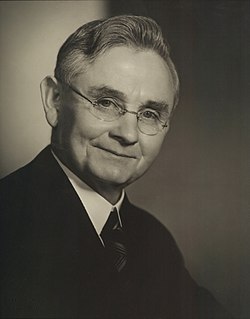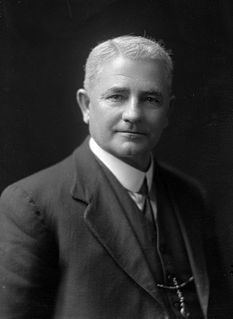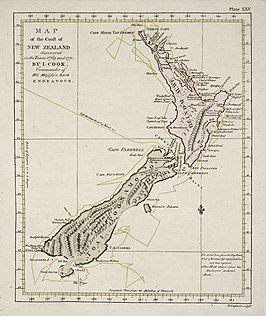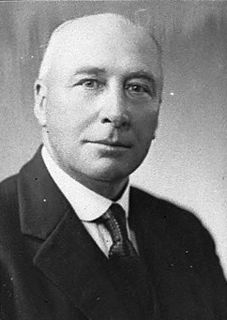Related Research Articles
The New Zealand Labour Party, or simply Labour, is a centre-left political party in New Zealand. The party's platform programme describes its founding principle as democratic socialism, while observers describe Labour as social-democratic and pragmatic in practice. The party participates in the international Progressive Alliance. It is one of two major political parties in New Zealand, alongside its traditional rival, the National Party.
New Zealand literature is literature, both oral and written, produced by the people of New Zealand. It often deals with New Zealand themes, people or places, is written predominantly in New Zealand English, and features Māori culture and the use of the Māori language. Before the arrival and settlement of Europeans in New Zealand in the 19th century, Māori culture had a strong oral tradition. Early European settlers wrote about their experiences travelling and exploring New Zealand. The concept of a "New Zealand literature", as distinct from English literature, did not originate until the 20th century, when authors began exploring themes of landscape, isolation, and the emerging New Zealand national identity. Māori writers became more prominent in the latter half of the 20th century, and Māori language and culture have become an increasingly important part of New Zealand literature.

Michael Joseph Savage was a New Zealand politician who served as the 23rd prime minister of New Zealand, heading the First Labour Government from 6 December 1935 until his death.

Sir Sidney George Holland was a New Zealand politician who served as the 25th prime minister of New Zealand from 13 December 1949 to 20 September 1957. He was instrumental in the creation and consolidation of the New Zealand National Party, which was to dominate New Zealand politics for much of the second half of the 20th century.

Socialism in New Zealand had little traction in early colonial New Zealand but developed as a political movement around the beginning of the 20th century. Much of socialism's early growth was found in the labour movement.
The Social Democratic Party of New Zealand was an early left-wing political party. It existed only a short time before being amalgamated into the new Labour Party. During its period of existence, the party held two seats in Parliament.
The United Labour Party (ULP) of New Zealand was an early left-wing political party. Founded in 1912, it represented the more moderate wing of the labour movement. In 1916 it joined with other political groups to establish the modern Labour Party.
The Independent Political Labour League (IPLL) was a small New Zealand political party. It was the second organised political party to win a seat in the House of Representatives, and was a forerunner of the modern Labour Party.

Henry Edmund Holland was an Australian-born newspaper owner, politician and unionist who relocated to New Zealand. He was the second leader of the New Zealand Labour Party.

The Liberal Government of New Zealand was the first responsible government in New Zealand politics organised along party lines. The government formed following the founding of the Liberal Party and took office on 24 January 1891, and governed New Zealand for over 21 years until 10 July 1912. To date, it is the longest-serving government in New Zealand's history. The government was also historically notable for enacting significant social and economic changes, such as the Old Age Pensions Act and women's suffrage. One historian described the policies of the government as "a revolution in the relationship between the government and the people".

Most New Zealand place names have Māori or British origins. Both groups used names to commemorate notable people, events, places from their homeland, and their ships, or to describe the surrounding area. It is unknown whether Māori had a name for the whole of New Zealand before the arrival of Europeans, but post-colonisation the name Aotearoa has been used to refer to the whole country. Dutch cartographers named the islands Nova Zeelandia, the Latin translation of the Dutch Nieuw Zeeland. By the time of British exploration, the country's name was anglicised to New Zealand.

Frank Langstone was a New Zealand Member of Parliament, Cabinet Minister and High Commissioner to Canada.

William Edward Parry was a New Zealand Minister and trade unionist.

Sir George Matthew Fowlds was a New Zealand politician of the Liberal Party.

Sir Ernest Hyam Davis was a New Zealand businessman, and was Mayor of Auckland City from 1935 to 1941. He was also on other Auckland local bodies and on various philanthropic and sporting organisations. He was Mayor of Newmarket from 1909 to 1910.
The Rugby League Cup is a New Zealand rugby league trophy that is contested between districts on a challenge basis. The trophy used to be known as the Northern Union Cup.

Robert Hogg was a New Zealand socialist politician, journalist and poet.

John Glover was a New Zealand politician and trade unionist. He was an organiser and candidate for the United Labour, Social Democratic Party then the Labour Party serving time in local government.
The 1914 Wellington City mayoral by-election was part of the New Zealand local elections held that same year. The polling was conducted using the standard first-past-the-post electoral method.
References
- Baker, Kevin (2006). Mutiny, Terrorism, Riots and Murder: A History of Sedition in Australia and New Zealand. Rosenberg.
- Gustafson, Barry (1980). Labour's path to political independence: The Origins and Establishment of the New Zealand Labour Party, 1900–19. Auckland, New Zealand: Auckland University Press. ISBN 0-19-647986-X.
- McLintock, A. H., ed. (22 April 2009) [1966]. ""Red" Federation of Labour". An Encyclopaedia of New Zealand. Retrieved 14 November 2013.